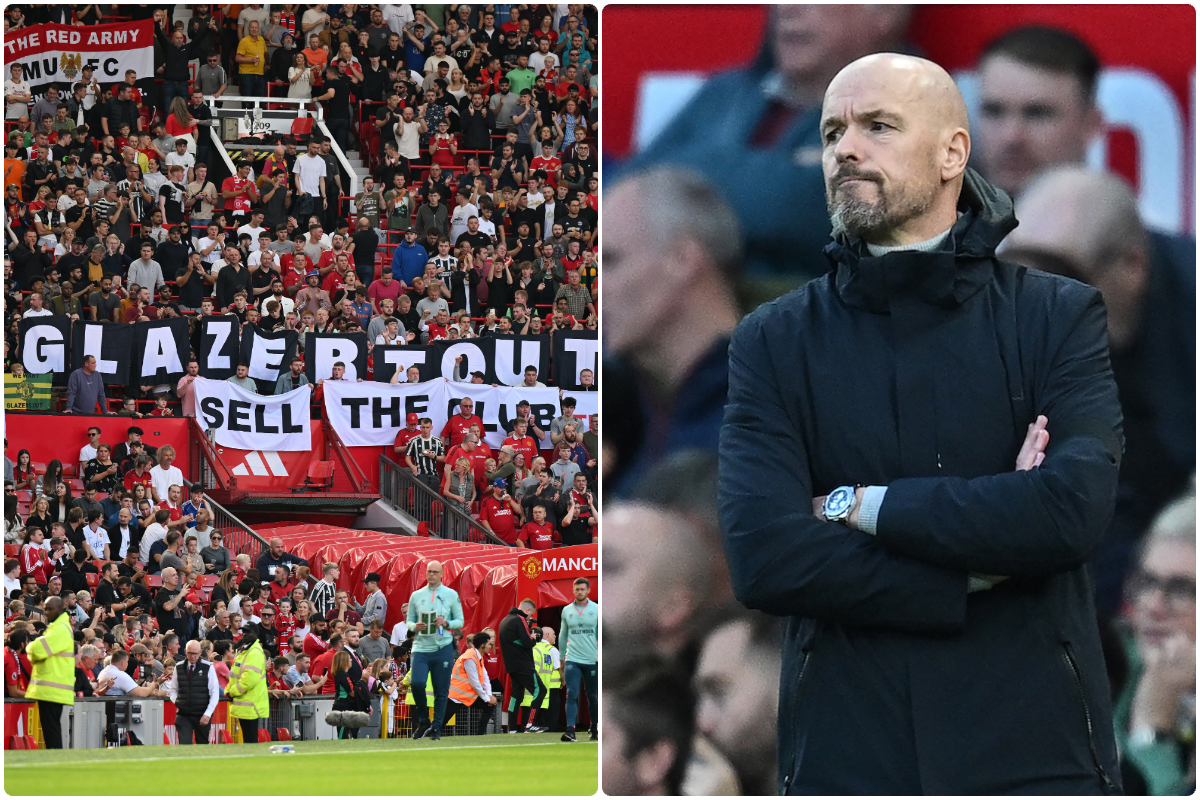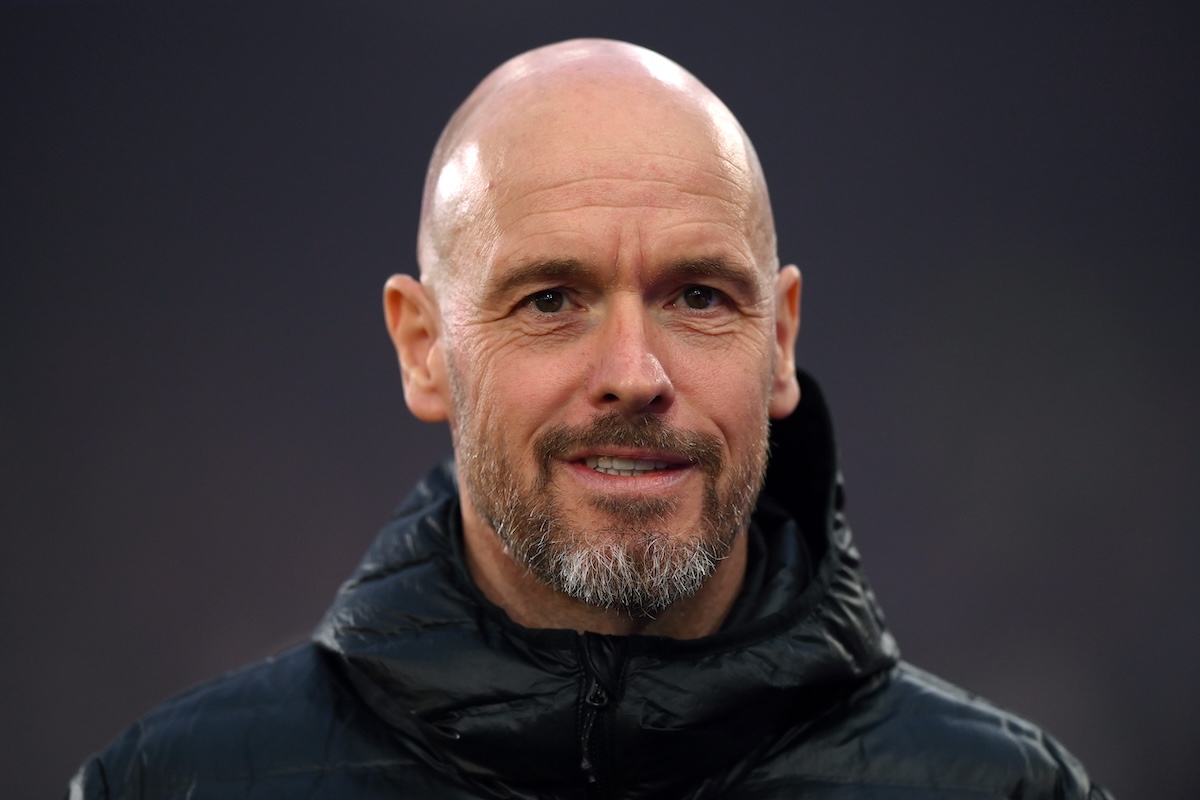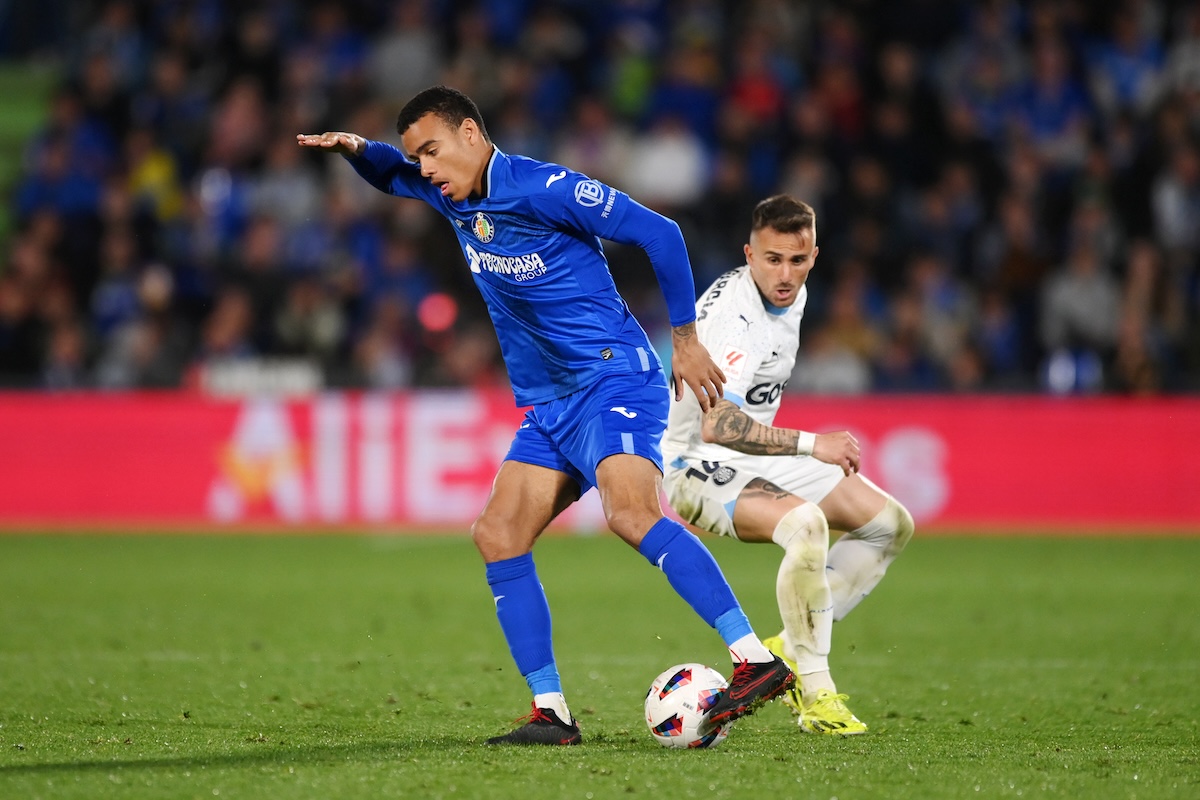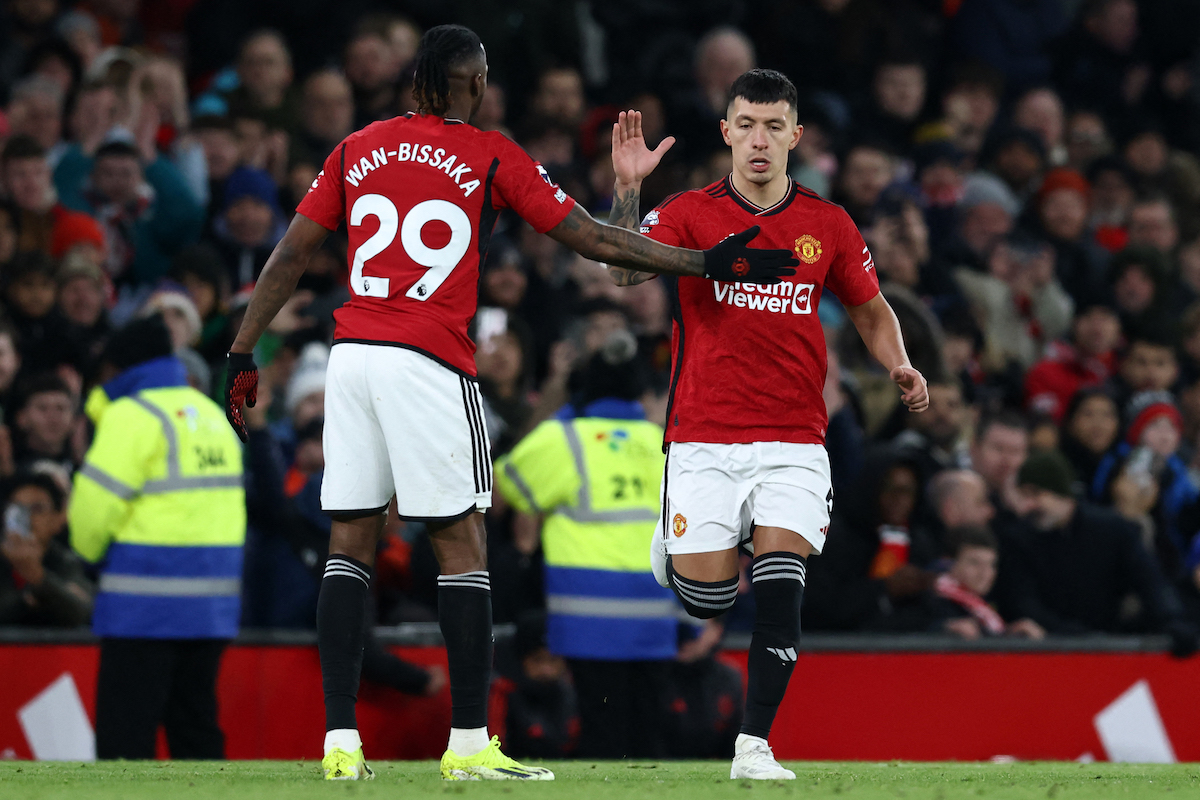Being a Manchester United supporter hasn’t exactly been a picnic in the decade since Sir Alex Ferguson–the greatest manager of all time–retired with a final Premier League triumph in 2012/13. Amidst a tangled knot of problems and failures, the club’s struggles have reached dizzying heights, leading to a divided fanbase, miserable coaching staff/players, a perpetual media circus, and a once esteemed Old Trafford literally crumbling under the weight of it all.
As human beings, though, we naturally seek to assign blame. We need a face at which to point the finger and say, “This is your fault!” Who shoulders the responsibility for Manchester United’s circumstances, however? The owners? The manager? The players? Do we, as fans have a part to play? Let’s take a look and you can decide for yourself how to portion out the accountability.
The Glazers
Ask Gary Neville and he’ll tell you that everything from results on the pitch to an overcooked pie at Old Trafford is the Glazers’ fault. While it’s obvious that the owners aren’t responsible for schoolboy defensive errors or missed sitters, much of United’s struggles over the last decade can be directly linked to the boardroom and the current state of affairs is the culmination of their poor stewardship. What we’re seeing on a weekly basis has the owners’ fingerprints all over it. The fact that we’re on our sixth manager in ten years screams of inept decision-making and recruitment, which is seriously worrying. The fact that our farcical attempt at any semblance of a transfer “strategy” repeatedly sees us overpay in fees and wages–only to lose players for free a few years later– is embarrassing. It’s frustrating to watch United stumble through each transfer window without a plan and take months to get a player signed when he could have been a big help in the first matches of the season. Ultimately, the people who make the most important footballing decisions at Manchester United are not football people and have demonstrated time and time again that they’re simply not cut out for the task. Yet, here we are still.
Again, the sheer amount of managers who have come and gone makes you wonder if a revolving door should be the first bit of renovation to be completed. That says less about these managers, though, than about the owners. As a business owner, myself, if I keep hiring and firing employees, it’s going to look like I don’t know what I’m doing and my competence will be questioned, and rightfully so. When it comes to tactics, style of play, or club ethos, it’s clear the owners couldn’t care less about what happens on the pitch; their financial gains via sponsors and revenue will yield dividends each quarter. It’s only when a manager fails to qualify for Champions League and that extra revenue is lost that the Glazers take notice and swing the axe. Then, the cycle begins all over again.
We can’t forget about the takeover process, as well, which has dragged on for over a year now with no recognisable progress. The media circus that the potential club sale has caused and the question marks it’s created regarding everything from future transfer budgets to proper top-to-bottom renovations, however, have done nothing to help United’s current struggles. This has been especially true of the pressure Erik ten Hag’s faced, as he’s the one being left to field any and all questions about the takeover. At present, you’d be forgiven as a United coach, player, or staff member for questioning whether or not you have a future at the club.
Under the Glazers, United has amassed nearly a billion in debt when it never had any before their arrival. Old Trafford has become a crumbling relic with a few coats of paint slapped on it now and then to hide the cracks (or leaks). The women’s team has been treated so poorly and our youth/training facilities are nowhere near where they should be for a club of United’s stature, let alone compared to other clubs. Malcolm Glazer took over Manchester United under questionable circumstances and his children–our current owners–inherited the club when he passed away. They’ve treated it exactly like a spoiled child would a shiny, expensive toy–they did nothing to earn or deserve it and, therefore, treat it like garbage because it means nothing to them. They’ve had their time, leeched their money from the appeal of United’s name and the hard-earned history they didn’t contribute to, and now someone else should be handed the reins in an effort to get this legendary club back to what it once was.
Erik ten Hag
If you’ve been following me for a while, you know I’m a big fan of Ten Hag. Even before he was appointed as United manager, I was in love with the way his Ajax side played. Under Ten Hag, Ajax looked more like a United side than United have looked in years. Now, there are people who will say the Eredivisie is a weak league, but Ajax were also-rans for years before Ten Hag arrived and have struggled since he left (they’re currently bottom of the table and have sacked four managers since Ten Hag left). Ten Hag also guided Ajax to its first Champions League semi-final in years, eliminating sides like Juventus, Real Madrid, and an Erling Haaland-led Borussia Dortmund along the way. Let’s not pretend he isn’t a good manager.
I give every manager time to get a fair few of his own players into the squad before judging him too harshly and Ten Hag earned a extra bit of grace after what he stepped into and accomplished last season in spite of the state of the club when he took over. Injury crisis aside, though, it was the post-match interview after this weekend’s derby defeat that caused me to seriously question Ten Hag for the first time. Defending the decision to bench Raphael Varane as a tactical choice caught me off-guard. Given Varane’s injury record, I–along with many others–assumed he wasn’t fit enough to start. Imagine my reaction upon hearing Ten Hag chose to start Jonny Evans and Harry Maguire against Manchester City. Furthermore, defending United’s performance in the match oozed of denial, naïveté, or some combination of both, and had me thinking for the first time that Ten Hag just might be out of his depth. Again, though, we come back to the fact that our owners have sacked and appointed more than half a dozen managers since Fergie retired, so what evidence is there to suggest that repeating the same cycle will lead to anything different?
I understand that in the modern game, people expect a lot very quickly, but this isn’t a video game and you can be critical of a manager and still not want him sacked. Ten Hag, though, has shown himself to be a bit stubborn and even naive when it comes to player selection and substitutions, and, recently, his decisions or reading of the game have made him look more than a little lost. Again, the injuries have to be taken into consideration. It’s difficult to play out from the back with Andre Onana when your defence is plagued with injuries, for instance. Playing devil’s advocate, too, even if Ten Hag were sacked today, what manager currently out of the job would be interested in taking over United right now? In fact, many top managers have literally stated they declined the United job for one reason or another. Jurgen Klopp, for instance, was approached, but turned it down because he felt the club was run like a business and not a football club, which echoes sentiments shared by former United manager, Louis van Gaal, who called United a “commercial club.”
In football, the manager will always bear the responsibility and face the consequences. It’s the nature of the job, right? I’m not saying I want Ten Hag sacked, but recent history would suggest that it would take an absolute miracle for him to make it past Christmas. Who knows, though? Maybe a private, clear the air meeting between Ten Hag, his coaches, and the players could turn United’s fortunes around. Injuries aside, Ten Hag needs to make a few wholesale changes, though–which includes his tactics and decision-making–if he wants to avoid being the seventh United manager to be sacked in just over a decade.
The Players
“Their performance against Spurs was disgraceful. You all have bad days in football, but some of the players were a disgrace to the Man United badge. There are too many bluffers, and ultimately these players will cost Ole his job. The players he has got there, they threw the previous manager under the bus, and they will do the same to Ole.”
Former Manchester United captain, Roy Keane, did not hold back with his opinion of United’s squad following a 6-1 defeat to Spurs a few years ago, and his words echo in the minds of United fans today.
There seem to be more questions than answers these days, but the players carry their fair portion of the responsibility. After all, the Glazers aren’t leaving Haaland wide open at the back post. Ten Hag isn’t taking a heavy touch in the final third or failing to track back after losing possession. Add to that the squad-wide lack of resilience when things become difficult and it’s a wonder how many of these players became professional footballers at all.
For the amount of wages these United players and their agents have negotiated, though, you’d expect a lot more than what we’ve been subjected to on the pitch. I could be wrong–maybe i’m just old now and a bit old-fashioned–but I remember a time when a player would sign for Manchester United and that’s when the real work started. Now it feels more like these players sign for the club or get a new contract with a wage increase and the work is done–they got what they worked for and now they get to coast. How many times have we seen it happen? Former goalkeeper, David de Gea signed a huge contract extension a few years ago and it wasn’t long after that his few and far between howlers became the norm over the course of his last few seasons at United. Marcus Rashford’s performances have gone downhill in astonishing fashion since signing his new contract last season. Jadon Sancho’s wages haven’t been justified since he signed for United two seasons ago after the club’s year-long high-profile pursuit of the English winger. Edinson Cavani was being paid £250k a week at United, but regularly chose to sit out matches when he didn’t feel like playing, making it feel like he only signed in order to snag one final payday and, unsurprisingly, he got it at United.
As a professional footballer, your job isn’t limited to just 90 minutes once or twice a week; it includes any and everything that contributes to your role on the team, such as training, fitness, diet, social media, extracurricular activities, etc. Yes, players have lives off the pitch, but when their personal activities negatively impact their performances on the pitch, it’s a problem that any employer in any industry would be within their rights to address. David Beckham, for instance, was subtly pushed out of United when his high-profile life became a distraction. Roy Keane was shown the door for publicly bashing his teammates. Cristiano Ronaldo’s narcissism, Sancho’s lack of commitment, Jesse Lingard’s brother/agent criticising the club while Lingard was still under contract–it all falls under the authority of the manager and/or the club. It’s the responsibility of the players to put in an honest effort and hold themselves to a professional standard, on and off the pitch. We’ve seen very little of that from United’s squad recently.
I recall the great Brian Clough, who said “You can have the best tactics in the world, but if your players can’t play, it won’t make a difference.” It’s a chicken or the egg situation when it comes to United’s squad and tactics. Is it poor tactics or are these players incapable of any tactic other than counter attack? We know Ten Hag is a tactical manager, just like Ralf Rangnick before him, and the players struggled under both. With counter attacking managers like Jose Mourinho and Ole Gunnar Solskjaer, however, they didn’t look awful. So what’s the problem? Is it the manager’s job to play tactics that suit the player he has or does he need to persist with his system until the players get it right? At what point does that decision need to be made?
Fans
Obviously, fans aren’t on the pitch, but we still have a responsibility for our role at the clubs we support. Social media has played a big part in the overall state of the modern game. I shudder to consider how events at United would have unfolded had social media been around in the early years of Sir Alex’s reign. He would have been sacked for sure. In an age where everything is instantaneous and about the “more, more, more” intake of information, “journalists” can spout utter nonsense to hundreds of thousands of people instantly and without any accountability, while social media users–including football fans–look to X, Instagram, or YouTube for their “news.” All this leads to is sensationalist clickbait, rumours masquerading as news from In-the-Know’s (ITK’s), and echo chambers where negativity and knee-jerk reactions are amplified to deafening levels and any opposing opinion is ridiculed as delusion. Popular channels, users, and content creators whip fanbases into a frenzy after a poor result and everyone demands change, typically in the form of managers being sacked (the English media is starving for it this year) or players being dropped. As a mental health professional, I worry for the personal relationships of some of these individuals who can so easily turn on a manager or player after one bad result or poor decision. Imagine getting back to a place as a society when you could make a mistake without it leading to a catastrophic, reactionary severing of the relationship; what a world that would be.
As a United supporter, I have to look in the mirror sometimes, as well, and make sure I’m being fair and objective in my criticism of the players and the manager. If we demand resilience and fight from them in the face of adversity, then we need to hold ourselves to a similar standard as the twelfth man, whose collective voice and passion can sometimes make all the difference. United fans need to show a bit more trust, patience, and loyalty, especially after poor results.
No one is blaming fans for results, recruitment, or the overall running of the club, but the toxicity and division among the United fanbase right now is not helping anyone. We can demand better, hold players and managers to a higher standard, criticise decisions AND not want anyone sacked or dropped. It is possible. Sir Alex said it himself, “If you can’t support us when we lose or draw, don’t support us when we win.”
Get the latest Manchester United news, opinion, interviews and exclusive features with the Stretty Newsletter – Ad Free! Kick off your afternoon with the Stretty News verdict on all matters Manchester United.




Manchester United, one of the most iconic football clubs globally
Nicely put, Mr McNally. These are dark days indeed, but knee jerk reactions haven’t served us well so far. Surely our knight in shining armour has to be Sir Jim, not another “Interim Ralf” 😐
i don’t understand all the love for ETH. he has spent a lot of money – 2/3rds of his signings have either played for him before or played in eredivisie. yet we hear he isn’t to blame – 85m on antony whom he coached for 2 years? mount 60m and he doesnt even have a plan how to use him. bruno captain?
and tactically he is schooled literally every single game. he also appears to be a poor man-manager, in fact what exactly does he bring? to me he is even worse than OGS, and that really is saying something.
Every fan is manager in. -until they aren’t. we saw it with ole. lots of support, lots of videos defending him, then bam – he needs to go! same will happen with the clueless ETH.
Ole and ETH have pushed united back years and have wasted what 700m?
the board needs to go but so can ETH. back to holland – his level or no job at all just like ole.